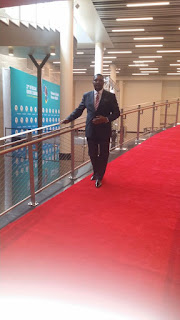
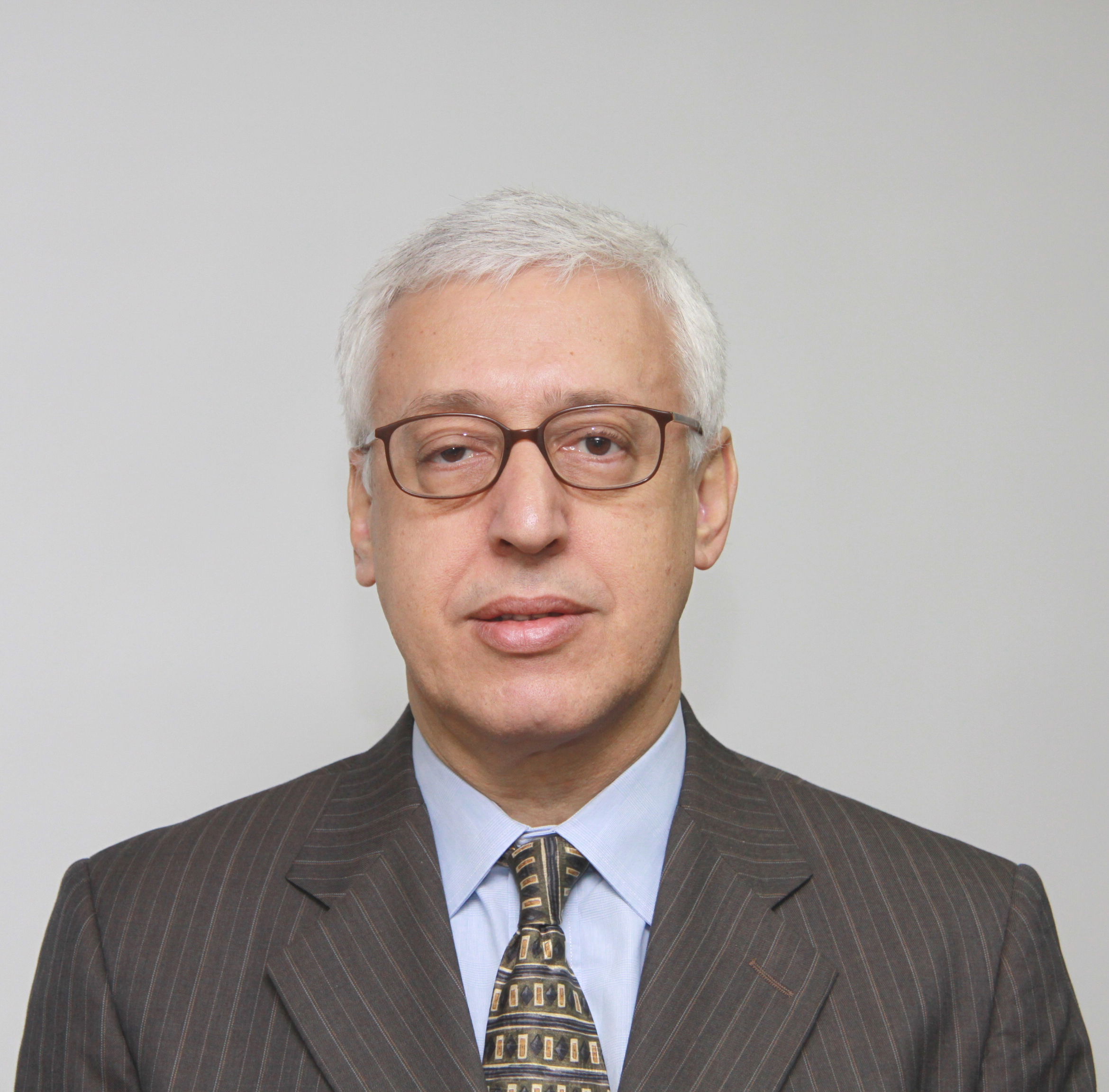
Brazil’s candidate for UNWTO: Marcio Favilla De Paula lays out his plan for Secretary General
Marcio Favilla L. De Paula hopes to become the next Secretary General of the United Nations World Tourism Organization (UNWTO).
Marcio is currently serving as Executive Director for Operational Programs and Institutional Relations at the UN World Tourism Organization (UNWTO) in Madrid where he has been serving in that capacity since 2014. Appointed by Brazil, Mr. Favilla de Paula was the Vice Minister at the Secretariat of Institutional Relations of the Presidency of Brazil from 2007 to 2009 before starting his assignment at UNWTO Madrid.
Between 2003 and 2007, he was Brasi’s first Vice Minister of Tourism, when played a key role in structuring and managing the first exclusive Ministry of Tourism in the country as well as in the formulation of the First National Tourism Plan and implementation of its five key objectives related to international arrivals and receipts, domestic tourism development, product diversification and job creation.
eTN publisher, Juergen Steinmetz, sat down with him for a discussion on the sidelines of ITB Berlin last week. Both Mr. Steinmetz and Mr. De Paula are serving on the Executive Committee of the World Tourism Network on Child Protection and met at a committee meeting held there.
With many other candidates competing for the job of Secretary General, it was refreshing to hear from Marcia Favilla De Paula:
“I will not comment on other candidates. I think every single candidate is highly qualified. After the election, we all have to work together. Let the best women or man win.”
“I am working hard on my campaign, with the help of my wife and my own financial resources.
Mr. De Paula summarized his goal to lead UNWTO during the next term based on the following policy priorities.
Sustain the policy focus on competitiveness and sustainability, in all its dimensions, in line with UNWTO’s Global Code of Ethics for Tourism and the 2030 Global Development Agenda.
Maintain UNWTO’s effective integration into the UN System and collaboration with UN sister organizations as well as with other governmental and private international entities in order to advance tourism relevance in the global development agenda.
Strengthen UNWTO’s technical output, knowledge development, and analysis capabilities in order to provide members with the most relevant and timely data and information, authoritative advice, and policy guidance, to serve and support memberships technically and politically.
Work closely with members, non-member states, relevant international organizations, and partners to jointly address the current global (and common) challenges of safety and security, while seamless friendly travel is preserved and enhanced. He said, “I know this is possible.”
Promote partnerships with the private sector, international organizations, development partners, and civil society as well as bi-lateral and regional cooperation initiatives in order to enhance investment opportunities, including those brought about by the ICT revolution, especially for women and young entrepreneurial talents. It is hard to think of another sector or another activity where cooperation fits so well, Mr. De Paula said.
Foster human resources development so that the growing and diverse needs of destinations, businesses, and tourists are met by increasingly-qualified people with career perspectives in the travel and tourism sector.
Consolidate UNWTO’s full and affiliate membership and devote special attention to bring in some of the most important source and destination countries that are currently not involved.
Step up efforts in bringing additional extra budgetary resources and funding to strengthen UNWTO’s capabilities in delivering services and providing technical cooperation to members in order to address their priorities and needs.
Pursue and enhance, with the engagement of staff and membership, UNWTO’s track record of efficiency, professionalism, transparency, and good governance and also adapt UNWTO to the demands of a volatile environment.
With 37 years of professional, managerial, and political experience, starting from local grassroots field work to the state, national, and international levels, Mr. Favilla brings his own unique combination of personal skills, technical knowledge, professional achievements, strong commitment and solid experience, including 7 years as Executive Director of UNWTO, to the candidacy slate for Secretary-General of the World Tourism Organization.
Mr. Favilla started his professional career in 1980 in Belo Horizonte as a credit officer of the Development Bank of Minas Gerais. He then held several managerial positions at the bank and at the State Secretariat for Finance of Minas Gerais, including that of Head of the teh State Treasury, before joining the Brazilian Federal Government in 1999.
Mr. Favilla has a Master of Arts in Development Studies from the Institute of Social Studies, The Hague, Netherlands. He speaks Portuguese, English, Spanish and French. Mr. Favilla is married, has two children. He was born in 1958.
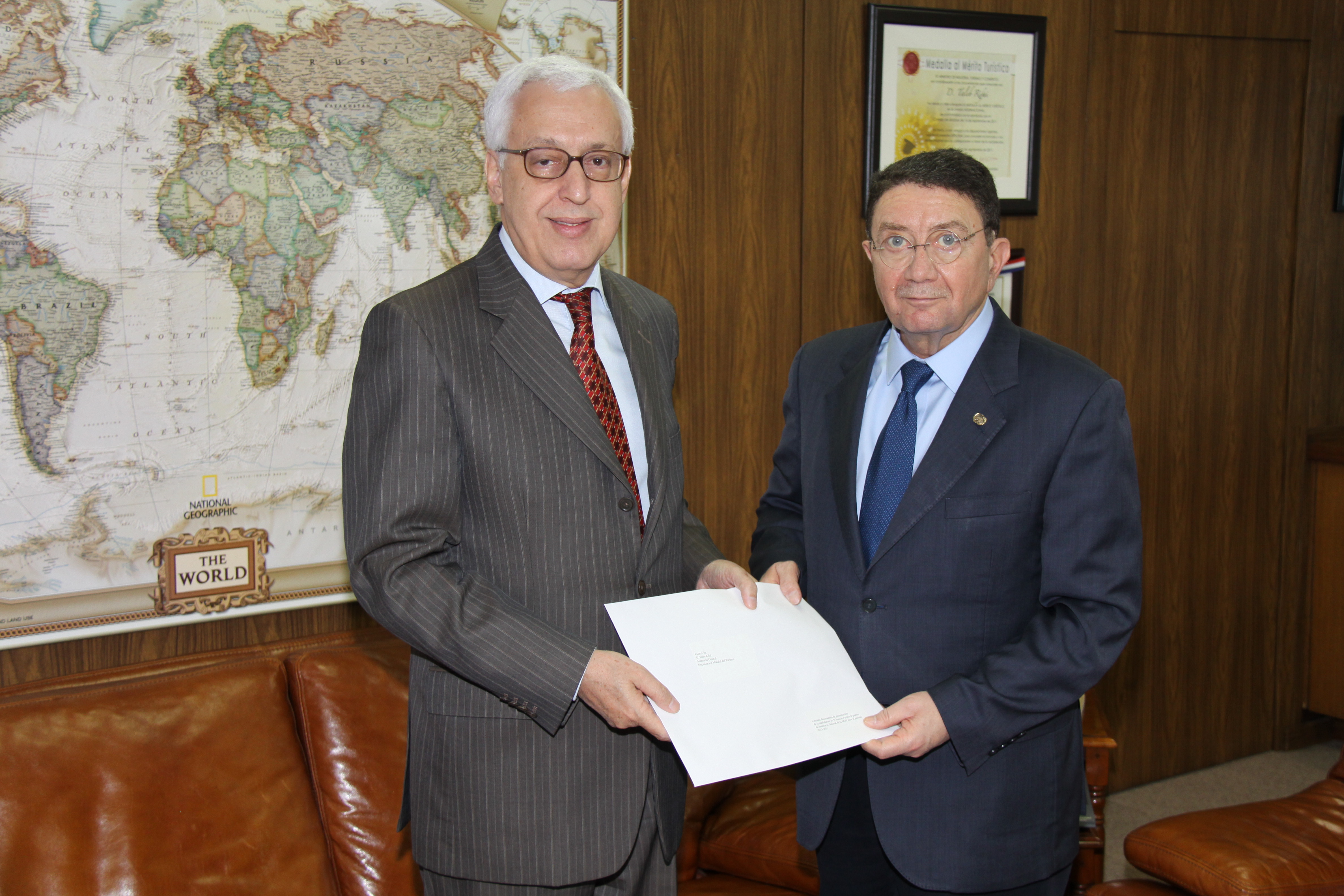
Márcio Favilla presents his papers to UNWTO Secretary General
Márcio Favilla made it official today. Today in Madrid, Mr. Favillo handed his documents to compete for the UNWTO Secretary General position to current Secretary-General Taleb Rifai.
Mr. Favilla Lucca de Paula is currently Executive Director for Competitiveness, External Relations and Partnerships at the World Tourism Organization (UNWTO) based in Madrid, Spain. He has been in this position since January 2010.
From April 2007, Mr. Favilla Lucca de Paula was Vice Minister of the Secretariat of Institutional Relations of the Presidency of Brazil.
Prior to this appointment, he was Brazil’s first Vice Minister of Tourism (2003-2007) where he played a key role in the structuring of the first exclusive Ministry of Tourism in Brazil.
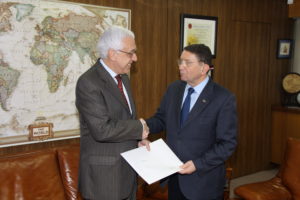
During his term as Vice Minister of Tourism he was actively involved in the development and implementation of the 1st National Tourism Plan and worked to increase both tourism arrivals into the country as well as domestic tourism.
He was also engaged in many of UNWTO’s activities as Head of the Brazilian delegation to all General Assembly and Executive Council sessions from 2003 to 2006, and Chairman of the UNWTO Commission for the Americas in 2006.
From 1999 to 2002 he worked at the Ministry of Development, Industry and International Trade as Head of the National Department for Business Registry among other positions.
Mr. Favilla Lucca de Paula was in Belo Horizonte from 1980 to 1998, first at the Development Bank of Minas Gerais and then the State Secretariat for Finance of Minas Gerais.
Mr. Favilla Lucca de Paula has a MA in Development Studies from the Institute of Social Studies, The Hague, Netherlands, where he specialized in Regional Development Planning (1985-1986). He obtained his undergraduate degree in Economics from the Federal University of Minas Gerais (1979).
Mr. Favilla Lucca de Paula is a Brazilian national, born in 1958.

UNWTO Secretary General Election: How it works?
The United Nations World Tourism Organization (UNWTO) generates market knowledge, promotes competitive and sustainable tourism policies and instruments, fosters tourism education and training, and works to make tourism an effective tool for development through technical assistance projects in over 100 countries around the world. The organization is based in Madrid, Spain.
UNWTO’s membership includes 157 countries, 6 territories and over 500 affiliate members representing the private sector, educational institutions, tourism associations and local tourism authorities. Its headquarters are located in Madrid.
UNWTO is not complete and struggles to speak for the entire world when it comes to travel and tourism issues. Surprisingly non-members are: Antigua and Barbuda, Barbados, Belgium, Belize, Comoros, Denmark, Dominica, Estonia, Finland, Grenada, Guyana, Iceland, Ireland, Kiribati, Latvia, Liechtenstein, Luxembourg, Marshall Islands, Micronesia, Nauru, New Zealand, Palau, Saint Kitts and Nevis, Saint Lucia, Saint Vincent and the Grenadines, Samoa, Singapore, Solomon Islands, Somalia, South Sudan, Suriname, Sweden, Tonga, Tuvalu, United Arab Emirates, United Kingdom, United States of America.
Any new Secretary General has to make it his or her priority to push non-members to become members and join the international United Nations community of tourism destinations.
“The Secretary-General shall be appointed by a two-thirds majority of Full Members present and voting in the Assembly, on the recommendation of the Council, for a term of four years. His appointment shall be renewable.”
The term of office of the current Secretary-General Taleb Rifai expires on 31 December 2017. It is therefore incumbent on the General Assembly to appoint a Secretary-General for the period 2018-2021 at its twenty-second session due to be held in Chengdu, China, in September/October 2017.
Consequently, in accordance with Article 22 of the Statutes and with Rule 29 of the Rules of Procedure of the Executive Council, the Executive Council will be required at its 105th session (11-12 May 2017 to recommend a nominee to the General Assembly.
For purposes of this nomination, it is proposed that the established practice be followed and, more particularly, that the rules adopted by the Council for the selection of a nominee for the post of Secretary-General at its twenty-third session in May 1984 be observed.
5. The above-mentioned rules, which have been consistently applied for the nomination for the post of Secretary-General since 1992, provide that:
“(a) only nationals of States Members of WTO may be candidates;
“(b) candidates shall be formally proposed to the Council, through the Secretariat, by the governments of the States of which they are nationals, and these proposals should be received not later than (date to be determined1 ), the postmark providing proof thereof;
“(c) voting shall be conducted by secret ballot in accordance with the Guiding Principles for the Conduct of Elections by Secret Ballot attached to the Rules of Procedure of the General Assembly;
“(d) the vote shall be decided in accordance with Article 30 of the Statutes and Rule 28 of the Council’s Rules of Procedure, by simple majority, defined as fifty
“(d) the vote shall be decided in accordance with Article 30 of the Statutes and Rule 28 of the Council’s Rules of Procedure, by simple majority, defined as fifty per cent plus one of the valid ballots cast; “
“(e) the selection of one nominee by the Council shall be conducted, in accordance with Rule 29 of the Council’s Rules of Procedure, during a private meeting, part of which shall be a restrictive meeting, as follows:
“(i) discussion of candidates shall be conducted during a restrictive private meeting at which only voting delegations and interpreters shall be present; there shall be no written record and no tape recording of the discussions;
“(ii) during the balloting Secretariat staff necessary to assist with the voting shall be admitted;
“(f) the Executive Council decides not to recommend a candidate proposed by the government of a member State in unjustified arrears (paragraph 12 of the Financing Rules attached to the Statutes); “(g) the Council shall select only one nominee to recommend to the Assembly.”
“(g) the Council shall select only one nominee to recommend to the Assembly.”
“(i) discussion of candidates shall be conducted during a restrictive private meeting at which only voting delegations and interpreters shall be present; there shall be no written record and no tape recording of the discussions;
“(ii) during the balloting Secretariat staff necessary to assist with the voting shall be admitted; “(f) the Executive Council decides not to recommend a candidate proposed by the government of a member State in unjustified arrears (paragraph 12 of the Financing Rules attached to the Statutes); “(g) the Council shall select only one nominee to recommend to the Assembly.”
In addition, the procedure established for the receipt of nominations that has been applied since 1992 provides the following with respect to the presentation of the nominations: “each nomination should be accompanied by a curriculum vitae and a statement of policy and management intent, expressing the nominee’s views on the manner in which he or she would perform the functions of Secretary-General. These particulars will be compiled in the form of a Council document and communicated to its Members within the prescribed time-limits. “In the interest of maintaining equality between the nominees and to ensure that their documents are readable, it is suggested that curricula vitae be confined to, say, two pages and statements of policy and management intent to six pages. The nominations will be presented in alphabetic order in the Council document.”
Since 1992, the time-limit set for the receipt of candidatures (to which the corresponding government supports, curricula vitae and statements of intent must be actually attached) has been established at two months before the session at which the Executive Council is required to select a nominee. The Secretariat consequently informs all the Members by note verbale of the receipt of each nomination.
Since 1997, the nominees for election to the post of Secretary-General have made an oral presentation of their candidature and intentions during the Council’s nominating session. Called in the Spanish alphabetical order of their surnames, the nominees are allotted equal time for making their presentations which are not followed by discussions.
In accordance with Rule 29(3) of the Rules of Procedure of the Executive Council, the recommendation to the Assembly of a nominee for appointment to the post of Secretary-General: “shall be made by a simple majority of the Members of the Council present and voting
If no candidate receives the majority in the first ballot, a second and, if necessary subsequent ballots shall be held to decide between the two candidates receiving the largest number of votes.”
In accordance with the constant practice of the Organization, recalled in decision 17 of 1984, a simple majority is “defined as 50 per cent plus one of the valid ballots cast”.
This rule was confirmed in 1988 and 1992 (decisions 19(XXXIV) and 19(XLIV)). In the event of an odd number, it seems in conformity with logic, with the ordinary meaning of words and with the dominant practice, to define it rather as representing the number of votes immediately higher than half of the votes validly cast3 .
As for the procedures of the “second” and “subsequent ballot” mentioned in Rule 29, should they prove necessary, the clarifications provided by the Legal Adviser in the Information Document for the Election of the Secretary-General in 1989 and confirmed in 2008 would apply in the event that two candidates should share the second place in the first ballot.
The consequence would be that another ballot (and as many additional as necessary for achieving the required majority) would be organized between the three candidates to decide which two candidates, having received the greatest number of votes, will subsequently participate in the final ballot. 12. Representation of a State by another Full Member of the Organization during the election of the nominee will follow the resolutions adopted by the General Assembly at its 19th session in the Republic of Korea in 2011 (resolution 591(XIX)), at its 20th session in Zambia/Zimbabwe in 2013 (resolution 633(XX)) and at its 21st session in Colombia in 2015 (resolution 649(XXI)). 13.
It is recalled that Members to which Article 34 of the Statutes and paragraph 13 of the Financing Rules attached to the Statutes are being applied at the time of the election are deprived of membership privileges in the form of services and the right to vote in the Assembly and the Council unless they have been granted a temporary exemption from the application of such provisions by the Assembly.
The procedure stated in this document has been put into practice successfully, and without giving rise to any particular difficulty, for the appointments carried out since 1992. 15. In line with the recommendations by the Joint Inspection Unit of the United Nations (JIU) relating to the selection and conditions of service of Executive Heads in the United Nations System Organizations (JIU/REP/2009/8), each applicant is requested to attach a certificate of good health signed by a recognized medical facility to the presentation of her/his candidature.
The Executive Council is invited: (a) To decide that the rules adopted by the Council for the selection of a nominee for the post of Secretary-General at its twenty-third session in May 1984 (decision 17(XXIII)), supplemented by those adopted at its thirty-fourth session in November 1988 (decision 19(XXXIV)), and at its fortyfourth session in November 1992 (decision 19(XLIV)) shall also be observed at its 105th session; (b) To confirm that, for the interpretation of the statutory rules governing the election of the Secretary-General and the decisions mentioned in subparagraph (a) above, reference shall be made to the contents of this document; (c) To invite the Member States to propose candidates for the post of Secretary-General for the period 2018-2021, ensuring that their nominations reach the Organization’s Headquarters (Capitán Haya 42, 28020 Madrid, Spain) two months before the inauguration of the 105th session of the Executive Council, i.e., by 24:00 hours Madrid time, 11 March 2017 (date to be confirmed), at the latest; (d) To request candidates to submit, together with biographical and career information, a statement of policy and management intent, expressing their views on the manner in which they would perform the functions of Secretary-General; and (e) To confirm that the 105th session of the Executive Council will select the nominee it should recommend to the twenty-second session of the General Assembly for the post of SecretaryGeneral of the Organization for the period 2018-2021.
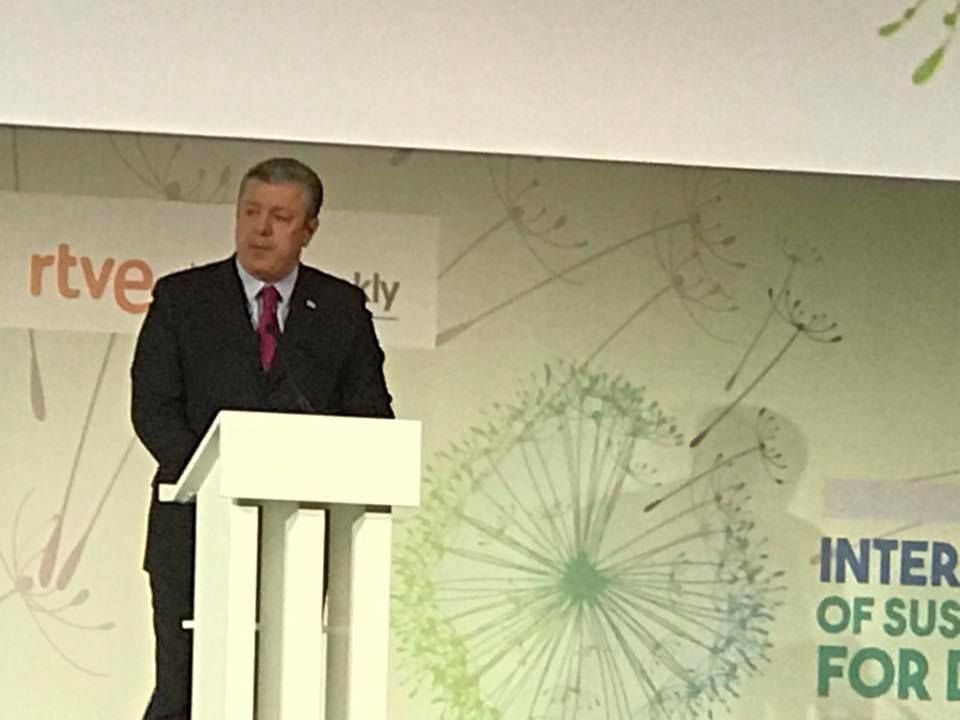
Appropriate or clever? Georgia’s Prime Ministers remarks at UNWTO event at FITUR
2017 is the UNWTO International Year of sustainable tourism for development. The event for the opening was today at FITUR 2017, a travel and tourism trade show that opened today at the Madrid Convention Center. The first speaker at the event and guest of honor, the Honorable Giorgi Kvirikashvili, prime minister of Georgia showed no hesitation to be the first to take the gloves off in the developing fight on who would become the next Secretary-General of the United Nations World Tourism Organization. Was his move appropriate or clever?
As a head of State, he pitched his ambassador to Spain, H.E. Zurab Pololikashvili candidacy to lead the United Nations World Tourism Organization as the next secretary general.
Ambassador Zurab Pololikashvili had presented his credentials to the Secretary-General of the World Tourism Organization (UNWTO) several weeks prior.
The prime minister pointed out Georgia beeing qualified since the country is a European country and had a 20% growth in tourism last year. Some in the audience thought this was a bold and self-servicing step knowing all other candidates were in the audience unable to speak or discuss their ambition. “A clever play”, was the other response.
Candidates from Zimbabwe, Seychelles, Brazil and Korea are among those already competing with the Georgian ambassador. More candidates may follow. The deadline to present credentials is March 12.
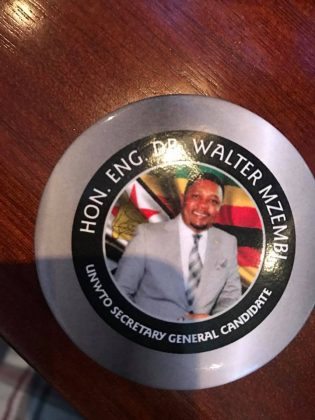
His Excellency Walter Mzembi’s response was to have his supporters remind FITUR visitors to remind them of the first African Candidate competing to lead the global UN organization as a candidate giving out a pin. It’s a fun out of the box approach for a unique candidate with a lot of fresh ideas.
Alain St. Ange, former minister of tourism from the Seychelles officially entered the race today as the second African competing for the post. It would be the first for an African UNWTO Secretary-General to be elected.
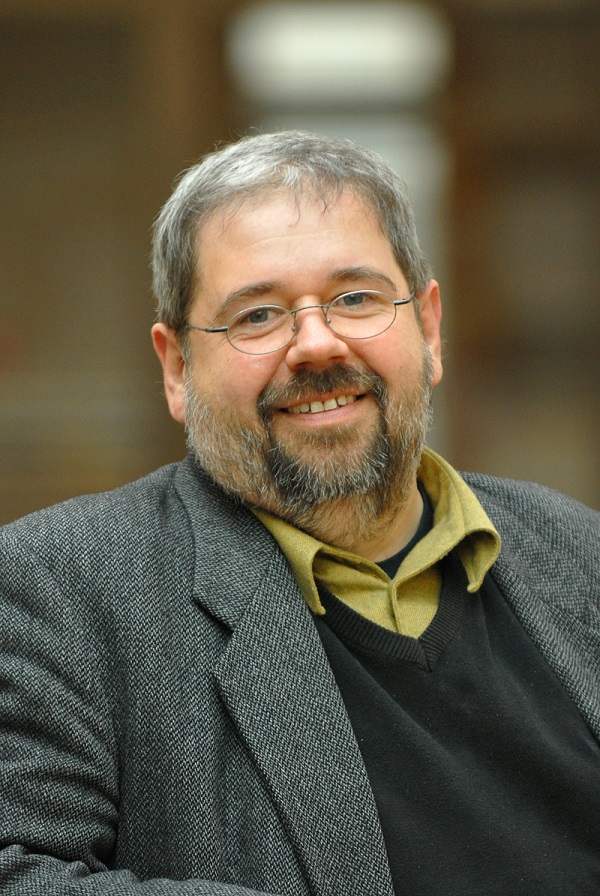
Prof. Dr. Wolfgang Georg Arlt appointed member of the ‘UNWTO Panel of Tourism Experts.’
Hamburg, 05.01.2017. The United Nations World Tourism Organization (UNWTO) has recently appointed Prof. Dr. Wolfgang Georg Arlt as a member of the ‘UNWTO Panel of Tourism Experts’. Prof. Arlt is a sinologist and professor with more than 35 years of practical and academic experience in Chinese tourism, and is Head Director at the Chinese Outbound Tourism Research Institute and Professor in international tourism management at the West Coast University of Applied Sciences in Germany.
As a leading expert in the field of outbound Chinese tourism, Prof. Arlt’s role as one of 500 appointed specialists will be to offer support and leadership expertise to the tourism sector as promoted by the UNWTO in advancing tourism policies and knowledge worldwide via the UNWTO Barometer.
Commenting on his latest accolade, Prof. Arlt stated that he is ‘honoured to be included in this distinguished group of experts, and is proud to play a role in supporting tourism as a form of intercultural communication in uncertain times.’ As Taleb Rifai, outgoing Secretary General of the UNWTO stated in January, ‘tourism is increasingly and rightly being recognised as a sector that can help usher in a better world.’
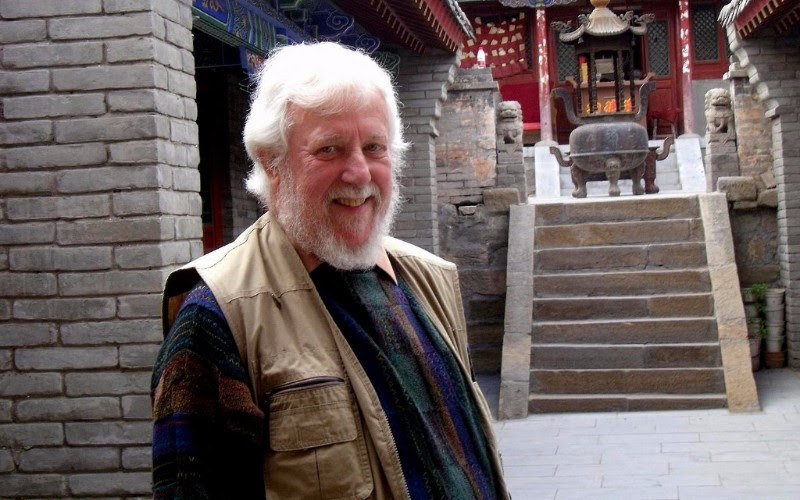
UNWTO awards Geoffrey Wall the Ulysses Prize for Excellence in the Creation and Dissemination of Knowledge in Tourism
The UNWTO Ulysses Prize for Excellence in the Creation and Dissemination of Knowledge recognizes the remarkable work of Professor Geoffrey Wall on several issues, but particularly on tourism and climate change. The Prize will be bestowed on Professor Wall during the UNWTO Awards Ceremony to be held on 18 January 2017 in Madrid on the occasion of FITUR, the International Tourism Trade Fair in Madrid, Spain.
Professor Wall is a Distinguished Professor Emeritus at the Department of Geography and Environmental Management, University of Waterloo, Canada, where he has been teaching for more than 40 years.
The Prize has particularly valued Professor Wall’s pioneer research on tourism and climate change and his work on ecotourism and tourism planning. His ecotourism assessment framework and economic impacts assessment models have been effectively implemented in parks and protected areas in many parts of the world. Most of his research has been undertaken in Asia, with a recent emphasis on natural and cultural heritage and indigenous people.
A prolific writer and researcher, Professor Wall has published more than 200 publications in refereed journals, more than 100 book chapters and about 20 books and monographs. He has also supervised more than 100 graduate students; many of them are now leaders in the tourism field.
Professor Wall has also considerable involvement in practical international planning initiatives. For example, he contributed to the Bali Sustainable Development Project, directed two Five-Year projects in China on coastal zone management in Hainan, and on eco-planning and development; and has been an advisor on many tourism planning initiatives, from provincial to local level, especially in China. He is currently assisting the preparation of the application for UNESCO World Heritage sites in Western China.
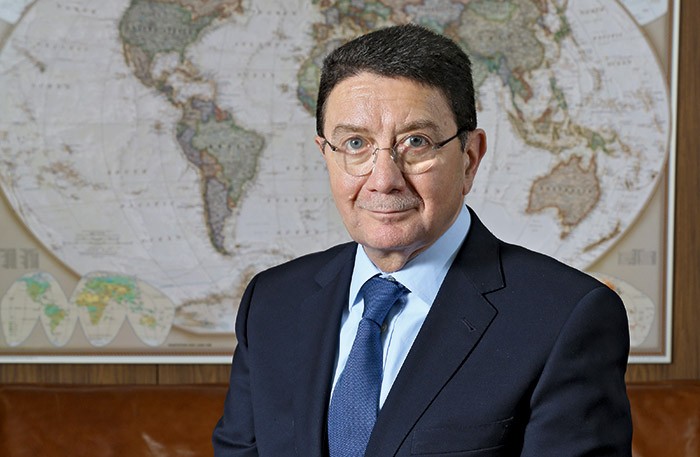
UNWTO Secretary-General congratulates Zambia’s new Minister of Tourism and Arts
UNWTO Secretary-General Dr Taleb Rifai has congratulated the newly appointed Minister of Tourism and Arts Hon. Charles Romel Banda MP.
In his personal congratulatory letter dated 05th October, 2016 and made available to Zambia’s Permanent Representative to the UNWTO H.E Amb. Humphrey Chilu Chibanda. Dr Rifai conveyed his sincere congratulations and wished the Hon. Minister every success and personal satisfaction in his new and important portfolio.
The UNWTO Chief retaliated the fact that Zambia is a highly active member of the Organisation, which successfully co-hosted the twentieth General Assembly in Victoria Falls in August 2013.
The Secretary General has stated that he is confident that the tourism industry of Zambia will further develop and grow for the benefit of the local population under the minister’s leadership. Dr Rifai noted that Zambia boasts of a vast and diverse landscape along with a rich culture and hospitality of its people, and he believes that the excellent relationship between Zambia and the World Tourism Organization (UNWTO) will continue to strengthen.
Furthermore, Dr Rifai has observed that given that Zambia is a member of Executive Council, he looks forward to personally meeting with the Hon. Minister at the forthcoming coming 104th Executive Council Session to take place in Luxor, Egypt from the 30 October-1 November 2016.
Dr Rifai has assured the new Minister of his and the secretariat’s assistance towards Zambia and was looking forward to welcoming the Minister at the UNWTO Headquarters at for a familiarization visit at his earliest and convenient time.
If you wish to receive new articles related to UNWTO Secretary-General congratulates Zambia’s new Minister of Tourism and Arts enter your email address in the field below and subscribe:

African Union endorsed one man for UNWTO Secretary General: Walter Mzembi
The Honorable Dr. Eng. Walter Mzembi is a happy man tonight. Today the African Union Executive Council sealed a United African endorsement for his candidacy to become the next Secretary General of the United Nations World Tourism Organization (UNWTO).
At the ongoing 27th Summit of the African Union in Kigali, Rwanda, the Executive Council brought Africa together. Africa now is behind and united in endorsing Mr. Mzembi. The UNWTO election process will start in October 2016.
Dr. Eng. Walter Mzembi is the current Minister of Tourism and Hospitality Industry for the Republic of Zimbabwe.
The Executive Council consists of mostly Foreign Ministers from African countries except Morocco. Morocco re-applied for membership.
This is a major endorsement for Mr. Mzembi. He had been jet-setting around the planet for some time, lobbying to get endorsement after endorsement from world leaders, global tourism organizations, and now from the African Union to lead world tourism in the United Nations system.
World Tourism is the largest job producer in the world. Ten percent or more of the world work force is employed directly or indirectly in the travel and tourism industry.
Tourists consist of more than 1 billion travelers and growing.
The Hon. Dr. Walter Mzembi, Ph.D., has been the current Minister of Tourism and Hospitality Industry for the Republic of Zimbabwe since 2009. He has also been a member of Parliament for the Masvingo South Constituency since 2004 and the United Nations World Tourism Organization (UNWTO) Regional Commission for Africa Chairperson from 2013 to date.
This industry, however, is facing enormous challenges in regards to global security. It will take a special type of leader for this post.
Mzembi is known to bring fresh and sometimes out-of-the-box ideas to the table and may just be the man for this job. Some had told him that he is fit for the job, but may be the minister representing the wrong country.
The world platform is changing fast, and after all, this may very well play to his strategic advantage over time. Africa is now being taken seriously in the world, and the minister’s approval is an endorsement not only for him but for an Africa that has learned and now knows how to speak with one powerful voice.
Mzembi’s experience in the world of tourism includes such international positions as Chairman of the Southern Africa Development Community Committee of Tourism Ministers in 2015, UNWTO Executive Council Member from 2009 to 2013, UNWTO Co-President in Session 20 of the General Assembly from 2013-2015, as well as President of the Africa Travel Association (New York-based) 3 times.
Just last week, he was recognized as a Tourism Leader by the International Coalition of Tourism Partners (ICTP).
Mr. Mzembi received many global honors:
– African Tourism Minister of the Year (2011): African Investor Tourism Investment
Awards
– Africa Leadership Awards (2012), Mauritius
– Brand Leadership Award (2012)
– Mark of Excellence Award (2012)
– Africa Leadership and Inspiration Award (2012)
– TouchRoad Sino – Africa Investment Excellence Awards (2011), Shanghai, China
– Africa Travel Association-Outstanding Service to the Association (2012), USA
– Special Recognition for Excellence Award: African Achievers Awards (2012), Nairobi, Kenya
– Africa Travel Association Presidency Appreciation Award (2012-2014), USA
Additionally, he has received recognition in the domestic arena as well:
– Public Service Manager of the Year (2011), Zimbabwe Institute of Management
– Tourism Personality of the Year (2011), Hospitality Association of Zimbabwe
– Tourism Personality of the Year (2012), Zimbabwe Council for Tourism
– Outstanding Contribution to Agriculture in Zimbabwe (2012), Zimbabwe Farmers Union
– Most Consumer Focused Executive-Service Excellence Awards (2014), Customer Contact Centre
– Tourism Image Builder of the Year (2014), Megafest Tourism Awards
– Exceptional Contribution to Marketing (2015), Marketers Association of Zimbabwe
– Customer Service Executive of the Year-Service Excellence in the Public Sector (2015), Marketers Association of Zimbabwe
-Registered Professional Engineer with the Zimbabwe Engineering Council
-Member of both the Zimbabwe and Zambia Institute of Engineers
-Fellow of the Zimbabwe Institution of Engineers
Ronald S. Mracky, Managing Director at Africa Consult Group in the United States, was one of the first international experts to congratulate Mzembi. He wrote:
“Personal good wishes and congratulations from Sylvia and me on your AU achievement of becoming Africa’s unchallenged choice for the UNWTO Secretary General.
“In our private and professional positions, we endorse the AU decision and be assured of our support in obtaining the needed world support for you and Africa within the worldwide tourism community.
“You have the qualifications to lead UNWTO and assist today’s world in utilizing tourism as a force for peace, good, and economic progress.
“Please accept our sincere congratulations.”
Mracky was asenior member of the Africa Travel Association (ATA), Pacific Asia Travel Association (PATA), International Air Transport Association (IATA), associate member of American Society of Travel Agents (ASTA), and other professional and academic groups.
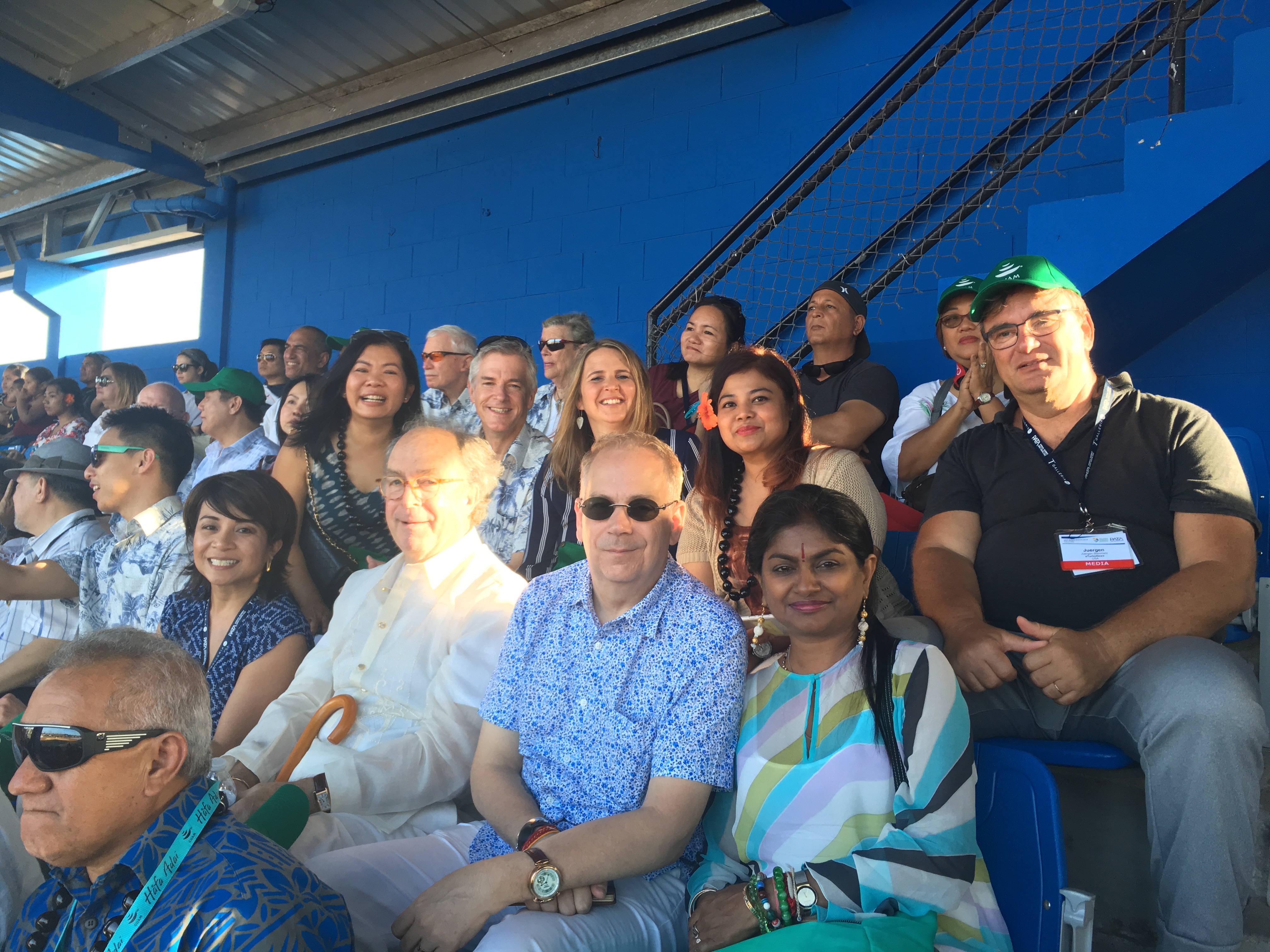
PATA CEO Dr. Mario Hardy: The Middle East is part of the Pacific Asia Tourism Region
Under the leadership of the Pacific Asia Travel Association (PATA) CEO Dr. Mario Hardy, the PATA as a travel and tourism organization has gained importance, leadership and reach. PATA is spreading its reach on a global scale. It appears the organization is now a world player in the global travel and tourism industry.
eTN publisher Juergen Steinmetz asked the PATA CEO if including Gulf destinations would compete with PATA’s traditional market in the Pacific Asia region
Mr. Hardy told eTN: “All destinations worldwide are welcomed to join PATA to gain insights from the fastest-growing travel region in the world. We are very much open to the idea of hosting a PATA event outside of our main region and sharing the knowledge and expertise of our Asian-based members.”
In the eyes of PATA The Middle East is now Asia Pacific. Mario Hardy explained: “Arguably every destination is competing with its neighbor, close or distant. You have to remember that PATA is about the promotion of tourism to/from and within the Pacific Asia region. The ‘from’ part had been less of a focus in the past, but is taking a greater importance due to fast growth of outbound tourism from Asia. Also PATA’s region starts in Istanbul all the way to South America [inclusive]. The Middle East is part of our region.”
Just last week, the United Arab Emirates(UAE), Ras Al Khaimah, joined PATA as a destination member.
At the recently successfully concluded PATA Summit in Guam,USA the minister of Culture and Tourism from the Seychelles, and island nation in the Indian Ocean, was the keynote speaker at the event.
eTN publisher Juergen Steinmetz asked Mario In taking on countries and regions with a lot of money, but questionable human rights records and discrimination, including destinations that criminalize LGBT behavior, and taking this in content with the recent attack in Orlando – wouldn’t this somehow generate a conflict?
Mario: Our partnership with IGLTA is founded on the basis that we want to spread a better understanding of the LGBT traveling community. It is about sharing knowledge about the regions that we cover with the IGLTA members and for IGLTA to share knowledge about their community with our members.”
Mario Hardy went on to say: “Every day there are terrible situations happening in the world that touches known destinations or lesser ones. There is too much horror in the world to necessarily communicate about them every single time. We may not necessarily issue blanket statements all the time, but it doesn’t mean that in private we don’t communicate our thoughts and prayers with the people touched. We have been in touch with our friends at IGLTA and personally shared our thoughts and regrets on social media where appropriate.
eTN: What type of sponsorship and additional member gain is expected for PATA to accept Emirates in the UAE and other Gulf destinations within your organization?
Mario Hardy: Membership fees for Ras Al Khama are they the same level as other Asian destination members, as the Middle East is part of the PATA region. As mentioned previously, our focus is the promotion of to/from and within the Pacific Asia region. Gaining new members from other regions helps increase our network and opportunities for our members to get better insights into the region and develop additional business opportunities.
JUERGEN T STEINMETZ
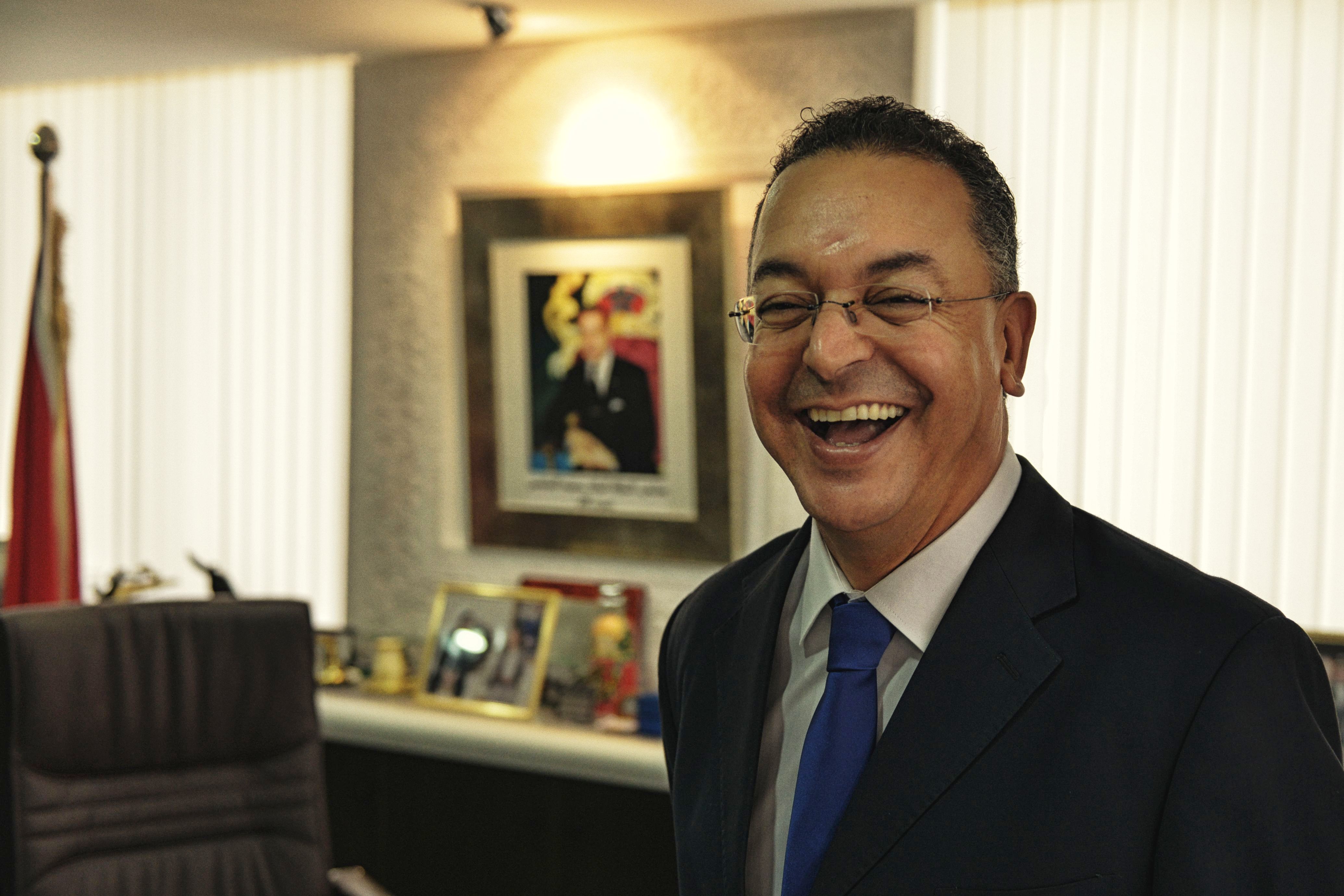
Morocco’s Minister of Tourism named Travel Personality of the Year
At a ceremony in Dubai attended by travel and tourism industry professionals and representatives from the local Arab community as well as the international media, Morocco’s Minister of Tourism, Mr. Lahcen Haddad, was named the 2015 “Tourism Personality of the Year.”
The minister received the award from the Arab Center for Tourist Media as part of the 8th edition of tourist trophies awarded annually by the center since 2008.
During the ceremony, Mr. Hussein, President of the Arab Center for Tourist Media, said that the consecration of Mr. Haddad is “to honor the minister in recognition of his experience and his efforts for the development of Arabic and local tourism.” He also explained that the objective of these awards is to “support and encourage the efforts and achievements to develop this sector in the Arab countries, and to boost tourist flows in Arab countries, and encourage the use of quality of services.
In his address, Mr. Haddad recalled the place and positioning of Morocco as a destination in the world tourism sphere. “This place embodies the maturity of the Moroccan destination and reaffirms its relevance.”
Mr. Haddad was reassured about the future of world tourism, adding that the tourism industry remains important, especially as the trip culture is increasingly rooted in travel habits. He said that tourism is a major factor of global economic change which is evolving more towards the services entertainment industry. Mr. Haddad added that the challenge for the coming years is to mobilize policymakers to focus on the innovations of the tourism trade.
The selection committee from the Arab Center for Tourist Media announced that the awarding of the prize of “Tourism Personality of the Year” going to Mr. Lahcen Haddad, was the result of him receiving a score of 4,569 votes. The mode of voting for this edition was done by electronic vote with the participation of 122 AEs listed in 23 categories representing 18 Arab countries.

